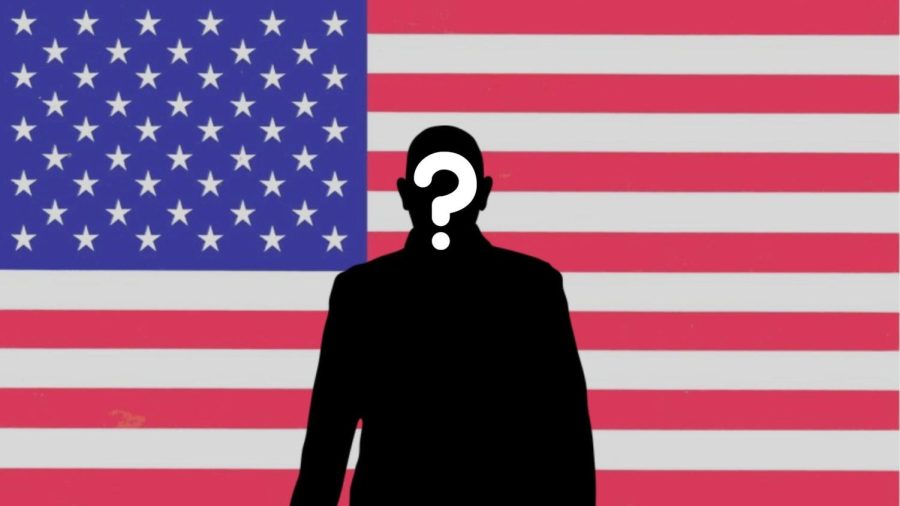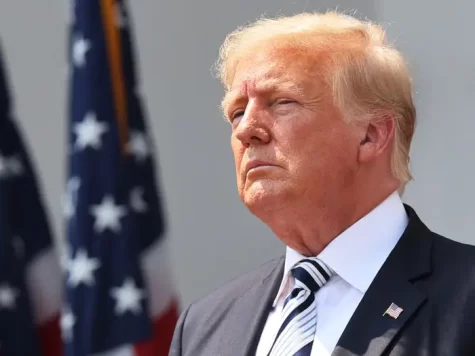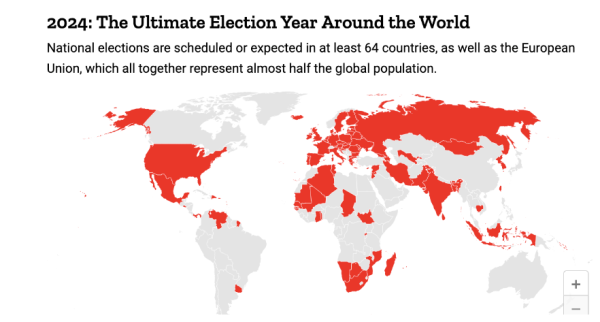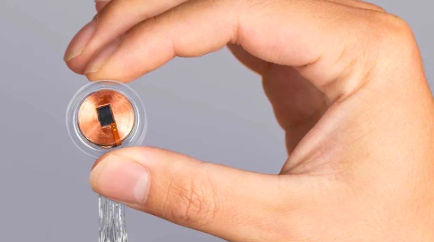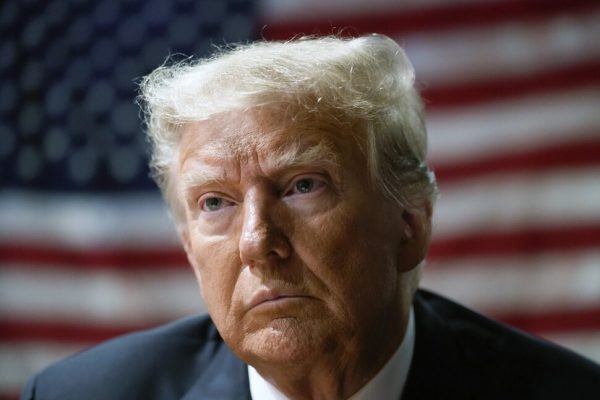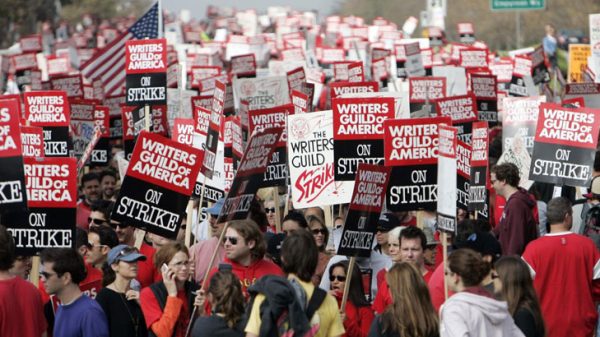Best US President since WWII PT. 1
When people are asked who the best president of the US is, they often say a couple of names: Washington, Lincoln, or either of the two Roosevelts. These presidents go down in American history with few people wanting to criticize them and are remembered as the top presidents of all time. Almost everyone you ask will say one of these four presidents, and critics of the four are often in the overwhelming minority. These presidents all left lasting impacts on the country that are still felt, and well known by almost everyone in this nation today.
Washington, of course, was our first president (many also consider him our best). After leading the revolution as a general, Washington became president unanimously, then famously stepped down after two terms to limit the power of our president–a tradition that all but one president has followed–which eventually was made official with the ratification of the twenty-second amendment. The people wanted to make George Washington a king but he humbly declined, knowing that giving too much power to one person was bad for the country.
Abe Lincoln is another president often cited as one of the best in our nation’s history. The first Republican president, his election caused a Civil war as southern Democrats ceded, worried that Lincoln would take away their slaves. Through vigorous fighting with heavy casualties on both sides, the US stayed as one country instead of dividing into two. He freed the slaves during the war and signed the Emancipation Proclamation, giving rights to nearly 3.5 million people African-Americans living in the south. He is remembered fondly by people on the left and right of the aisle for both his leadership through the war and his freeing of the slaves.
Theodore Roosevelt, the youngest person ever to take the office, had a very colorful career before his presidency, from being a cowboy in North Dakota, to fulfilling the role of Assistant Secretary of the Navy. Roosevelt resigned from the post after the Cuban War started so he could fight (find a politician today willing to do that) and led the cavalry regiment, the Rough Riders, a group of volunteers consisting of cowboys and policemen, on the front lines. He famously led a daring charge against heavy enemy fire at the crucial battle of Sanjuan Hill, shooting multiple enemies in the process before winning the battle for Americans (this act would win him the medal of honor after his death in all the way in 2001). After the Cuban War he would go on to serve as governor of New York, then vice president, becoming president after McKinley was assassinated. As president Roosevelt preserved the national parks, put America on the world map as a Military powerhouse, broke up monopolies that were running rampant in America, created the Panama Canal, and upheld the Monroe Doctrine, keeping the Europeans out of the Americas.
FDR, the only president to serve more than two terms, is probably the highest ranked democrat on many lists as well as being in the top five in general. He led the nation through the Great Depression, using New Deal policies that debatably made the depression last longer or shorter depending on who you ask. He also led the nation through WWII while he was alive, which alone would put almost any president into the upper tier.
These four presidents are definitely great, but who is the best president after that? After FDR there have been a total of 14 presidents, ranging from upper-tier to the lowest of the low, but no president out of this group is considered an all-time great (although three come very, very close, and I’ll talk about those later).
There are many reasons for this, one being the polarization of recent politics. Since the 1992 election, no president has been able to achieve a landslide victory, and even before then, they were becoming more and more rare. States began to form a political identity with some states like New York and California being solid blue, Texas and Kansas being solid red, and states like Florida and Ohio (although maybe not anymore) being considered swing states. This polarization has not only affected recent elections, but also how people view past presidents. One president may be very popular in one area while considered the devil in another. If you went to 100 Americans today from different areas of the country and asked them their opinion on any president after FDR, I guarantee you that there will not be an overwhelming majority on either side (although some presidents are definitely viewed more favorably than others).
Another reason is recent bias. The closer in time you are to a president serving in office, people tend to remember their faults a lot more than presidents from 100 years ago. As time goes on people forget and become more sympathetic towards presidents that may have not been considered so good. A great example of this is Jimmy Carter. Jimmy Carter was arguably the worst president since FDR (for good reason too, I’ll get to that), but because of his age and his charitable work after his presidency, he has become more favorable in the eyes of the public.
Who were the presidents after FDR?
So who was the best President after FDR? Well before I answer that I thought I may give a slight rundown of all of them, just in case you are unfamiliar with some of them or need a slight refresher.
Harry Truman [D] 1945-1953
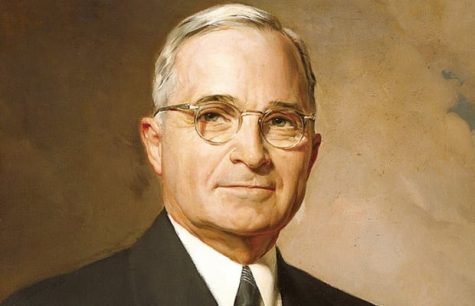
Harry Truman took over the presidency after FDR died at the end of WWII and won with atomic might, dropping two atom bombs over Japan securing the victory. He then helped rebuild Europe with the Marshall Plan and created NATO and the Truman Doctrine to contain communism. He created the CIA and the National Security Council to protect the US from foreign threats, especially as the Soviet Union became a powerhouse. His popularity fell after he intervened in the Korean War as the war dragged on causing the deaths of many American troops.
Dwight D Eisenhower [R] 1953-1961
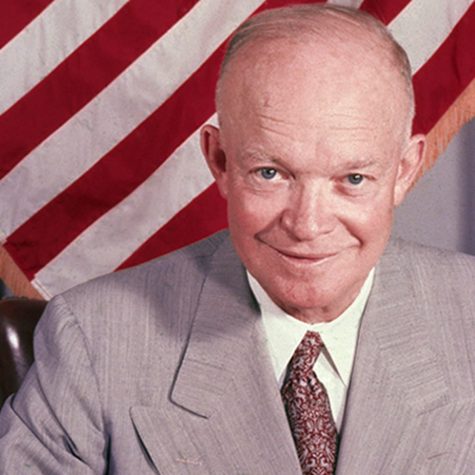
Dwight David Eisenhower took office after a landslide victory in 1952. He was the Supreme Commander of troops in Europe in WW2 and NATO after that, so he was quite a popular man after the war. He ended the Korean War, calling for a ceasefire which made his popularity rise significantly. He also built the highway systems that we still use in the US today, the same highway systems that guarantee that every US supermarket is full of food all the time. Eisenhower was able to add the first new states to the Union since 1912, being Alaska and Hawaii, and passed the Civil Rights act of 1957 to help African Americans achieve more rights. He was able to use the newly founded CIA very effectively in the Cold War to overthrow the Soviet-aligned Guatemalan government very quickly and with little casualties. He also started NASA, initiating the Space Race with the Soviets that the US would eventually win many years later when his vice president, Richard Nixon, became president and put men on the moon. This is certainly a president who is in the running for best post-WW2 president.
John F Kennedy [D] 1961-1963
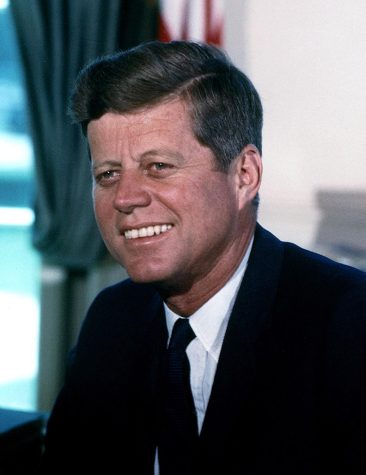
JFK took office, officially becoming the youngest president ever elected. JFK took strides in securing equal rights for Americans of all races, although he was assassinated before he could see those out. He was able to defuse the Cuban Missile Crisis, preventing a war with the Soviet Union that may have ended the world. His biggest blunder was most likely the Bay of Pigs fiasco, in which CIA-trained exiles from Cuba tried to take back Cuba, but failed miserably. JFK also set the nation on a path to win the Space Race, creating the Apollo program. He created the Peace Corps, which to this day helps third-world countries around the world. Tragically, he was assassinated in 1963 which cut his presidency short making it so that many of his dreams for America started and never happened. JFK is another president that is probably in the running for best post-WW2 president.
Lyndon B Johnson [D] 1963-1969
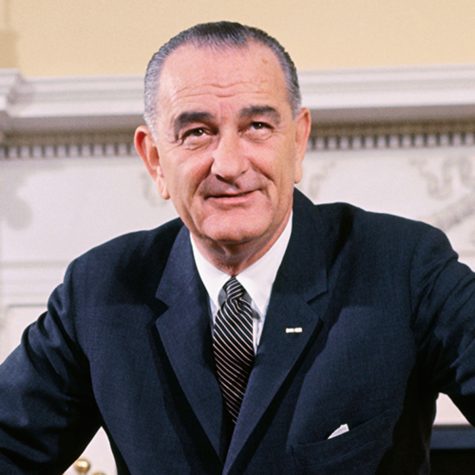
LBJ took office after Kennady was assassinated and successfully ran for a full term. He was able to pass many of Kennedy’s plans for civil rights, including the famous 1964 Civil Rights Act and the Voting Rights Act, giving equal rights for Americans no matter their skin color. He envisioned a “great society” and declared a “war on poverty,” although that is not the war he is remembered for. LBJ sent hundreds of thousands of American troops into Vietnam marking the bloodiest conflict since WW2. His actions caused the deaths of millions of Vietnamese people and thousands of Americans and ended in an American defeat, one of the darkest spots in American history. Because of the Vietnam War, LBJ declined to run for re-election as he would surely lose, and subsequently the war also dropped his rating from one of the best presidents to arguably one of the worst.
Richard M Nixon [R] 1969-1974
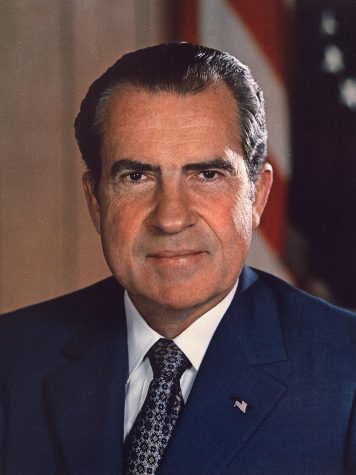
“Tricky Dick” is what they called him, one of the most notorious presidents of all time. Before he was known for the Watergate Scandal, Nixon actually had some pretty nice accomplishments. He successfully put a man on the moon when the Apollo 11 mission succeeded, ending the Space Race with a US victory. He also opened up trade with China and the USSR helping to ease the nations in the Cold War. His relationship with China specifically created a divide in the China-USSR relationship which caused the Sino-Soviet split and would help the US win the Cold War. These accomplishments led to him winning a huge landslide victory for a second term, a term cut short when he became the only president to resign after the Watergate Scandal, in which his campaign taped the Watergate Hotel for political secrets, was discovered after a failed coverup.
Gerold R Ford [R] 1974-1977
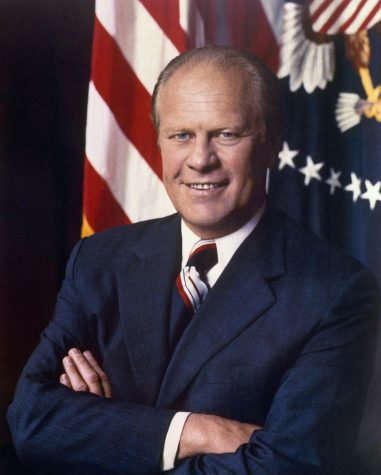
Gerold Ford succeeded Nixon after he resigned, and the first thing he did was pardon his former boss, which made him very unpopular, but in hindsight was probably the right thing to do. Ford helped move the nation past Watergate and forget about the scandals of the previous administration. Honestly, I would write more, but that’s about it. He failed to win the election in 1976 which made him one of the shortest serving presidents to not die in office. Fun fact to make the paragraph even longer: Ford is the only president never elected as vice president or president, having been appointed to his position.
Jimmy E Carter [D] 1977-1981
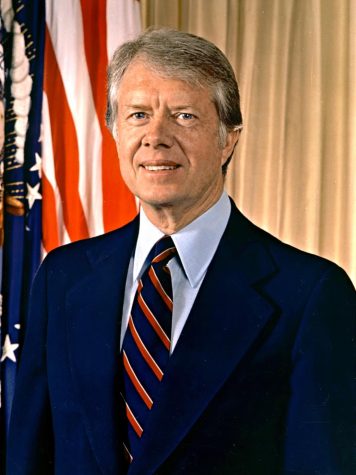
The peanut farmer Christian from Georgia was elected in 1976 and started off with a bang; on his second day in office, he pardoned all Vietnam draft dodgers, which helped heal the nation. Unfortunately, that’s about all he really did that many consider positive. He tried to have Middle Eastern peace talks, which was really all talk with no action between Israel and the Middle East. His one term in office saw the US economy go so far down analysts needed to make a bigger chart. Inflation went as high as 18 percent and unemployment was higher than it had been since the Great Depression. Carter had a very famous blunder when he failed to rescue the Iranian hostages and became a scapegoat. His term ended with an energy crisis in which the price of oil went so high that many Americans could not afford to drive cars. He failed to win reelection, losing in a landslide to Ronald Reagan. To be fair to president Carter, who is still alive, he is a really nice person, and post-presidency he has done a lot of charitable work for the world and has worked for Habitat for Humanity for many years, even winning a Nobel Peace Prize.
Ronald W Reagan [R] 1981-1989
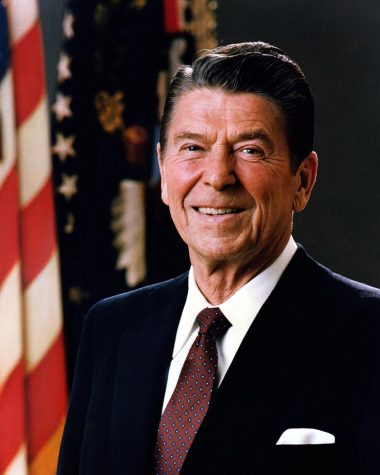
The “Great Communicator” won the election in a landslide victory after winning the electoral college 489-49 in one of the biggest landslides in history. He promised “Morning In America again” to the Americans who were struggling under Carter, which was a good theme for his presidency. On his first day in office, he saw the Iranian hostages freed which made him instantly popular, being able to do what Jimmy Carter could not do in a year in a single day. He reduced inflation from double digits to 3 percent and got America back to work, cutting unemployment by huge margins. He also increased military spending, which restarted the arms race running up a deficit but also caused the Soviet Union to do the same, an action that led to their downfall. He cut taxes on Americans, primarily on corporations, which allowed the economy to rebound after the disastrous Carter years. He won by an even bigger landslide in his reelection campaign carrying 49 out of 50 states and nearly 60 percent of the popular vote (the only state he lost was the other candidate’s home state and it was only by a couple thousand votes). His second term saw him travel to Germany where he said one of the most famous words of the Cold War “Mr. Gorbachev, tear down this wall.” His presidency was not flawless however as the war on drugs and the Iran-Contra affair tainted his legacy. Nonetheless, he was very popular when he left office, having around a 60% approval rating, and is another president to consider for the best president since WW2.
George HW Bush [R] 1989-1993
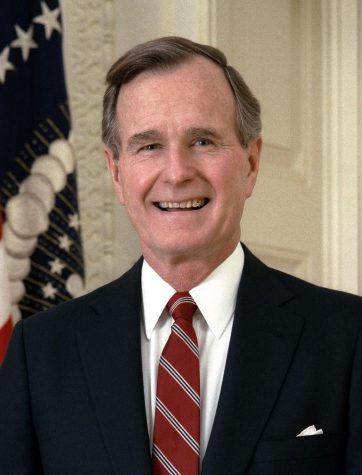
George HW Bush won the election in 1989 promising to keep Reagan’s policies of low taxes and to never, ever, raise taxes EVER (we’ll see about that). Bush had a colorful career before he was president, having been a Navy pilot in WW2, Congressman, de facto ambassador to China, Ambassador to the UN, CIA director, and vice president under Ronald Reagan. His presidency led the creation of NAFTA which allowed for free trade between the US, Mexico, and Canada. The USSR also collapsed during his time, ending the Cold War in a US victory. Bush also had successful military conquests in Panama and Iraq winning both wars with few casualties. Bush was forced to raise taxes before his reelection due to running deficits, which made him very unpopular with Reagan supporters. This, along with a third-party candidate who took away a lot of his votes, cost him reelection.
William (Bill) J Clinton [D] 1993-2001
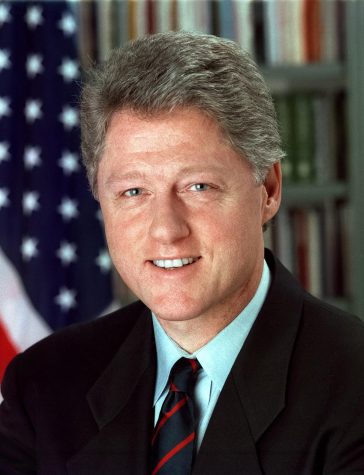
Bill Clinton replaced Bush in 1993 and continued many of the Reagan/Bush policies despite promising to change them. He was president during the longest period of economic expansion in American history, with his presidency seeing a change in the Democratic Party from a party of the working class to more Wall Street-oriented. His presidency saw the US having a budget surplus for the first time in many years, as the economic prosperity and taxes allowed for the US to decrease national debt for once. He was able to pass welfare reform and laws helping with children’s health. He would be remembered as an all-time great, but his legacy was severely tainted when he was impeached by the House for lying about having an affair with a secretary, Monica Lewinsky. Nonetheless, he remained popular with the general public.
George W Bush [R] 2001-2009
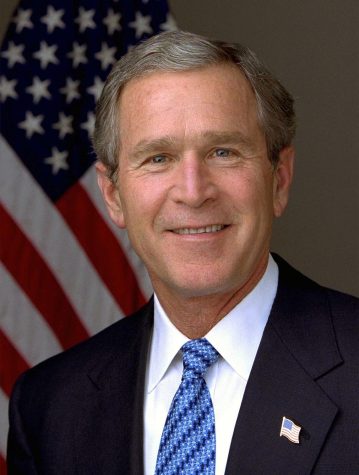
The son of George HW Bush, George W Bush won in what is most likely the closest election in recent history: 271-269. The election was decided by the swing state of Florida and came down to 400 votes. Upon taking office, the US was hit by the 9/11 attacks, which had Bush declare a War on Terror invading the Middle East and Iraq to get Al Qaeda. This was a bad move, costing the US trillions of dollars and thousands of lives. He was able to be reelected in another close election in 2004, but his approval rating did not improve much in his second term. He was a scapegoat for the government’s poor response to Hurricane Katrina and the economic crash of 2007, known as the great recession, causing his popularity to drop even in his own party. He left office with an approval rating of less than 25 percent, but like Jimmy Carter, he is a nice man who does a lot of charity work for veterans now.
Barack H Obama [D] 2009-2017
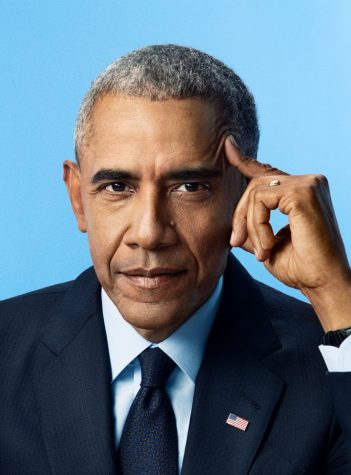
Obama was the first African American president elected, promising change to the policies of Bush Jr. Obama was able to pull the US out of the recession by federal spending, which did improve the economy but also put the US into even more debt. He signed the Affordable Care Act, giving health care to millions of Americans who had not had it before. Obama promoted gay rights during his term, with gay marriage being legalized in 2015. He promised to bring the troops out of the Middle East, but in reality, he never did, putting more troops in than ever before. The Obama Administration also saw many security compromises and leaks, the most notable of which being the Edward Snowden leaks which revealed the NSA spying on people and the Hillary Clinton email scandal later on which may have cost her election. In his final days in office, he failed to get a Supreme Court justice on the bench after the Senate refused to hear a vote on the matter.
Donald J Trump [R] 2017-2021
Trump was probably one of the most controversial presidents in recent history, saying things that no president before him (or after) had said. His presidency made some accomplishments such as repealing the forced mandate of Obamacare causing the insurance premiums of Americans to go up and cutting taxes on the working class. He also was the first president to visit North Korea, de-escalating a situation that could have led to nuclear war. He was able to renegotiate various trade deals like NAFTA to America’s benefit and pursued an America first agenda. He enacted a travel ban from Muslim countries out of fear of terrorism, a move that many called racist or xenophobic. Ultimately, his handling of the COVID-19 pandemic cost him reelection as the economy went down in his final days in office and a couple hundred thousand Americans died of COVID, although Operation Warp Speed, developing a COVID vaccine within a year, was a success and that has helped the US recover. His persona and vulgar language have caused a lot of political polarization in America with the nation heavily divided on whether he is the greatest of all-time or the worst.
Joseph R Biden [D] 2021-present
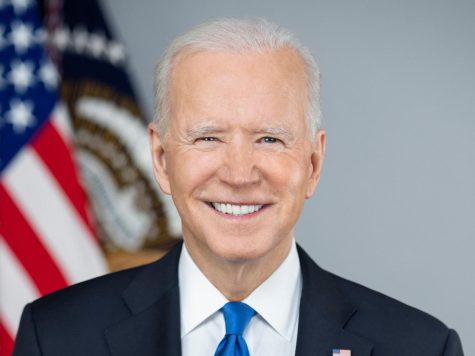
Our current president, Joe Biden has been in politics for over 40 years before becoming president being a senator and vice president over that time. He is really recent so I’m not going to rate him or give an opinion—we will have to see where he goes.

